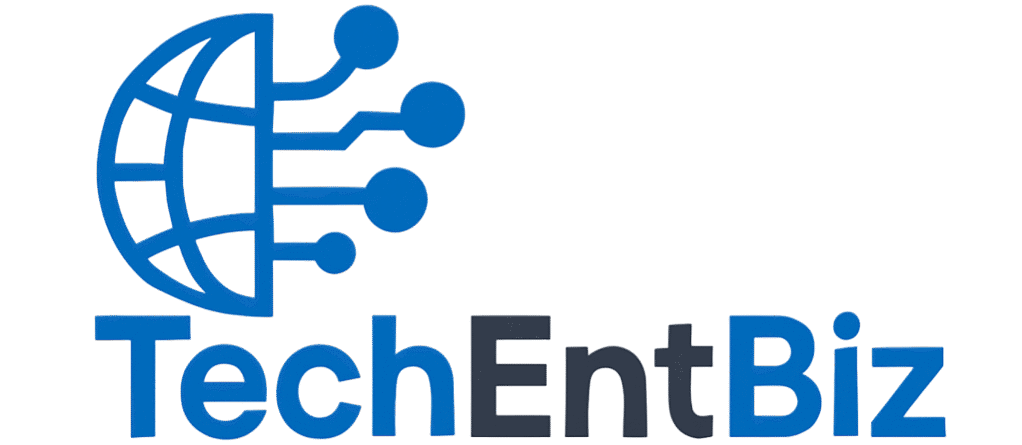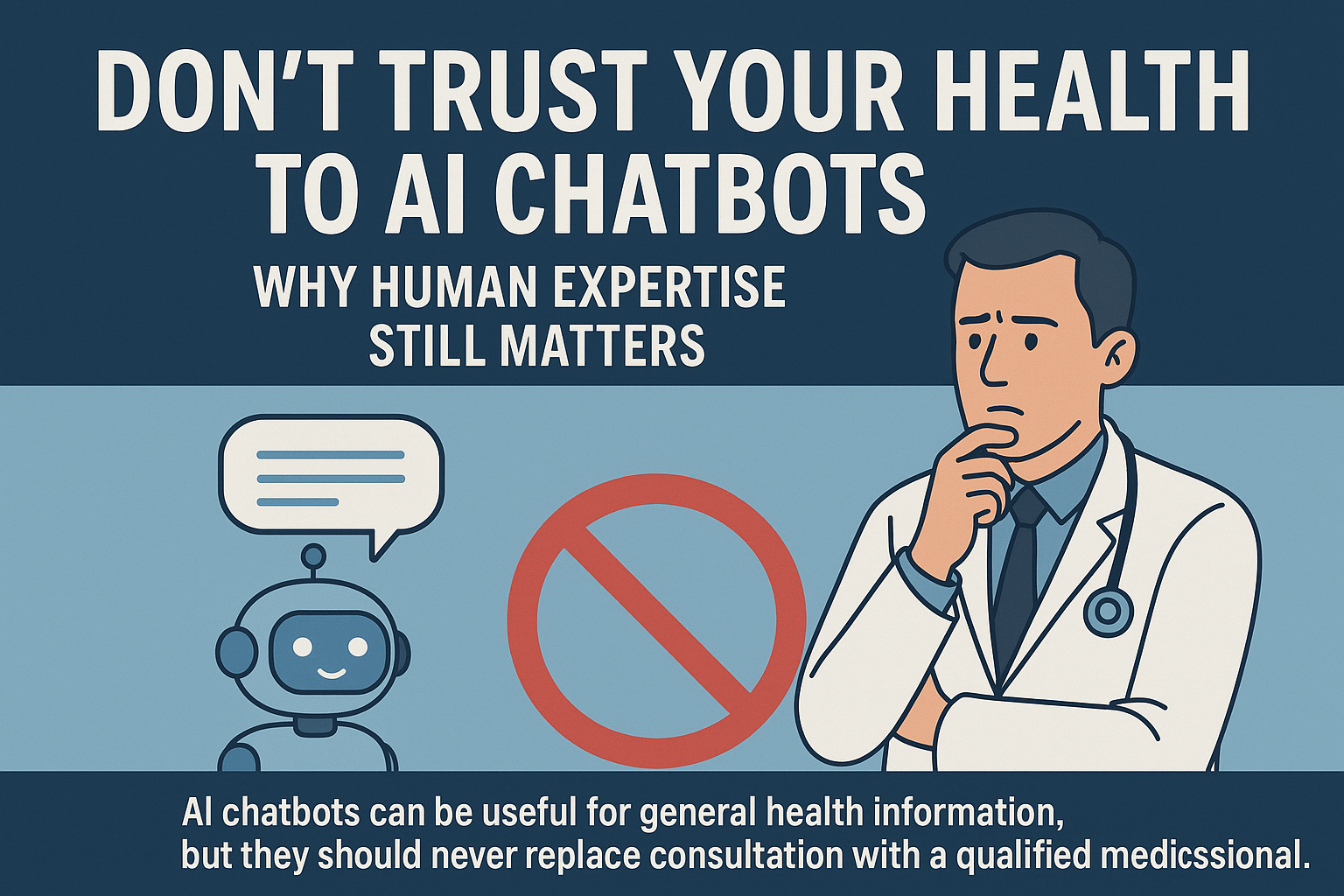Don’t Trust Your Health to an AI Chatbot: Why Human Expertise Still Matters
Don’t Trust Your Health to an AI Chatbot : In today’s digital age, information is at our fingertips. Need a quick recipe? Ask an AI chatbot. Curious about the weather? There’s an app for that. But when it comes to your health, should you really be taking advice from artificial intelligence? The short answer is: absolutely not.
While AI chatbots can seem helpful, offering instant answers and seemingly personalized tips, relying on them for health advice is a risky game. Here’s why you should steer clear and stick to trusted human sources:
The Danger of Inaccurate Information
AI chatbots, no matter how sophisticated, learn from vast datasets. However, this information isn’t always accurate or up-to-date, especially in the rapidly evolving field of medicine. There have even been documented cases of AI chatbots providing harmful advice. Imagine searching for a simple dietary suggestion and receiving guidance that, while plausible-sounding, could actually lead to serious health complications. One such alarming instance involved an individual who followed an AI chatbot’s salt-free diet plan and developed a rare and dangerous condition due to a suggested toxic salt substitute. This highlights the critical flaw: AI can generate convincing but entirely incorrect information.
Lacking the Human Touch:
Context and PersonalizationYour health is unique to you. Your medical history, current conditions, medications, and lifestyle all play a crucial role in determining the right course of action. AI chatbots lack the nuanced understanding and ability to consider these individual factors. They provide generic advice, which might be irrelevant or even harmful in your specific situation. A human doctor spends years learning to interpret complex symptoms, understand medical histories, and build a complete picture of a patient’s health – something an algorithm simply cannot replicate.
The Risk of Over-Reliance and Eroding Human Expertise
The convenience of AI chatbots can be tempting, but it carries the risk of making us overly dependent. Studies have shown that even healthcare professionals who start relying on AI for assistance can see a decline in their own skills when that AI is removed. For patients, constantly seeking health advice from AI chatbots could lead to neglecting crucial in-person consultations and potentially ignoring serious symptoms. We risk losing our ability to discern reliable health information and make informed decisions about our well-being.
Beware of Hidden Biases
AI chatbot algorithms are trained on data, and if that data reflects existing biases in healthcare (such as underrepresentation of certain demographics in research), the AI’s advice can perpetuate these inequalities. This could lead to misdiagnosis or inappropriate treatment recommendations for certain groups of people.
The Abundance of Reliable Human Expertise Online
The good news is that you don’t have to rely on AI for online health information. The internet is brimming with reputable sources. You can find a wealth of blogs and articles written by qualified doctors and healthcare experts. Trusted medical websites, professional organizations, and even your own doctor’s website often provide valuable and accurate health tips. A simple Google search can connect you directly with information vetted by human professionals.
The Golden Rule: Always Consult Your Doctor Face-to-Face
For any health concerns, questions, or before making any significant changes to your diet or lifestyle, the most crucial step is to schedule an appointment with your doctor for a face-to-face consultation. They can provide personalized advice based on your specific needs and medical history. AI chatbots can never replace the expertise, empathy, and comprehensive assessment that a real doctor offers.
In conclusion, while AI has its place in many aspects of our lives, your health is not one of them. Prioritize reliable, human-backed information and always consult with your doctor directly. Don’t gamble with your well-being by trusting medical advice from an AI chatbot.

